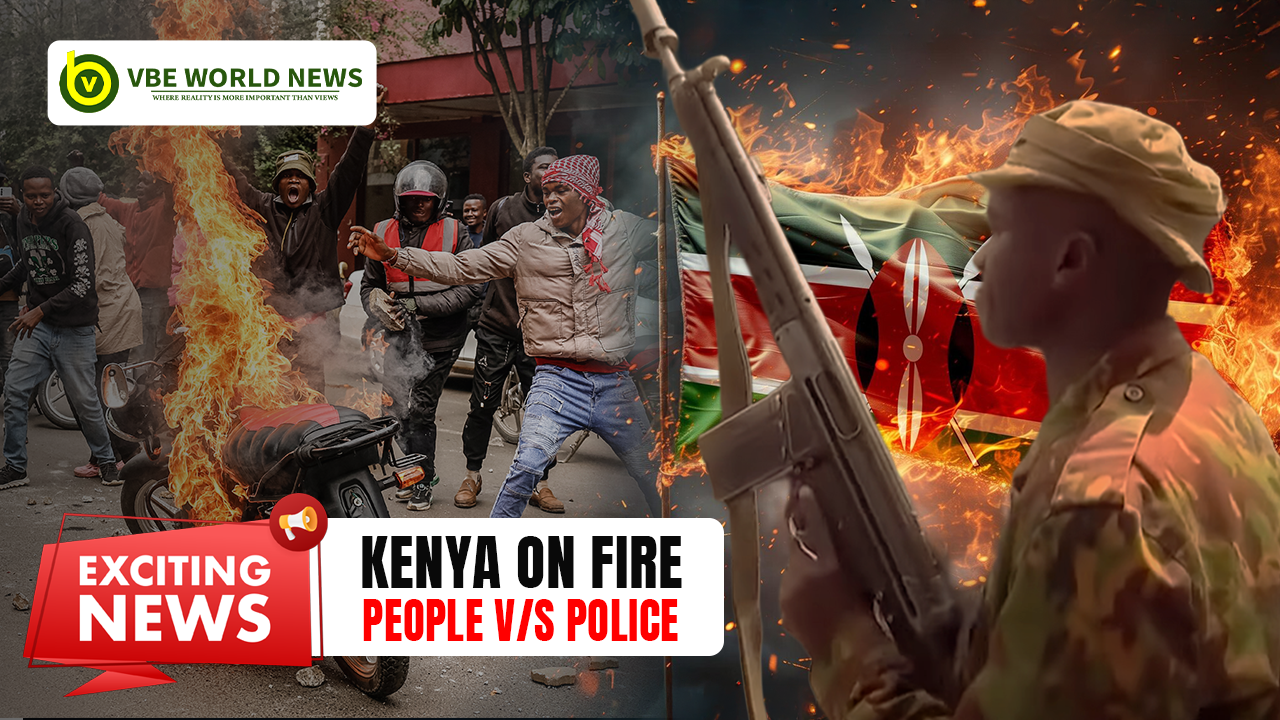
Kenya On Fire: Youth-Led Protests Intensify Against Police Brutality
Tensions still run high in Kenya as thousands of protesters, who are mostly youth, have emerged in a huge revolt against claimed police brutality and oppression by the government. A peaceful protest calling for justice and openness has escalated to violent confrontations, burnings, and a national crisis.
The protests, driven by anger over police brutality, high unemployment, and increasing socio-economic inequality, came to a head this week when security forces allegedly opened fire on unarmed protesters in Nairobi and other large cities. Reports of several deaths and injuries ensued, which attracted global alarm and criticism from human rights groups who have demanded de-escalation.
Eyewitness footage and accounts by local journalists depict a grim scene: burning motorcycles, clouds of tear gas shrouding city centers, and riot police clashing with protestors using batons and live bullets. Social media has been filled with hashtags such as #KenyaProtests and #JusticeForYouth, amplifying the voices of individuals on the ground.
“We’re tired of being ignored. This is not just about one incident — it’s about years of abuse, neglect, and lack of opportunity,” says 22-year-old Elijah Mwangi, a student protestor in Nairobi. “We want reform. We want dignity.”
The government of Kenya has reacted with appeals for restraint but insists that the use of law enforcement is needed to stop what they term as "destructive unrest." Critics still say that the overuse of police response has only made things worse.
Human rights monitors such as Amnesty International and Human Rights Watch have called for investigations into the actions of the police and are calling on the Kenyan leadership to have meaningful dialogue with civil society.
What the next few days bring could profoundly change the political and social landscape of Kenya. The world is watching, and there is one thing certain: Kenya's youth are no longer going to shut up. Their demand for justice is being heard far beyond the streets of Nairobi.